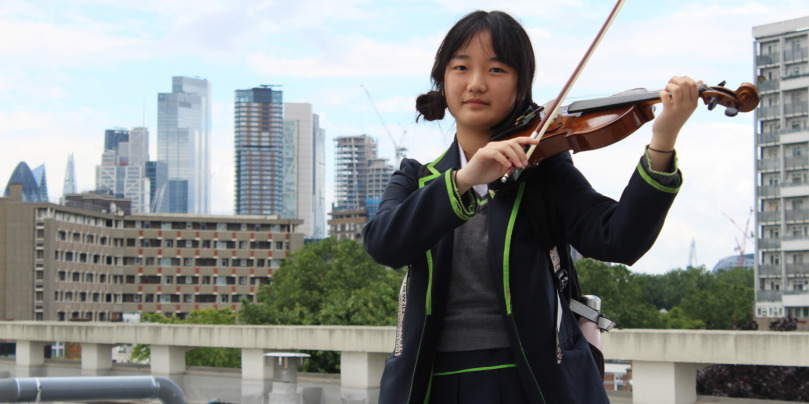
Music GCSE
You should choose Music if:
- You enjoy singing, playing instruments, performing and listening to music
- You enjoy composing your own music, e.g. songwriting and want to develop these skills
- You are keen to discover and experiment with different musical sounds, genres and cultures from bhangra, salsa and disco to the traditions of western classical music
- You wish to extend on your performance skills as an individual and as part of an ensemble
- You may be interested in a musical career; teaching, lecturing, a musician (singer/instrumentalist), management, recording, producing, concert promoting
Careers
The possible careers after GCSE Music are: BBC Radio Presenter, Music Publisher and Editor, Producer, Recording Studio Manager, Researcher and a Film Music Technician.
The Course
During the course you will:
- Receive free one to one lessons with a professional musician on the instrument of your choice for the duration of the course. This will support the performance and composition aspects of the course
- Perform on your own and as part of a group/ensemble
- Produce two recorded compositions
- Develop appreciation for many types of music
- Attend concerts and further your listening repertoire to all styles of music
- Show a real commitment and enthusiasm for the subject
The themes include: Film, Music, Pop History, Rhythms of the World and Concerto Through Time and we will be following the OCR syllabus at GCSE Level.
How will you be assessed?
| This will consist of: | |||
| Component 1 | 60% | NEA (Non-Examination Assessment) | This component involves performance and composition using either a musical instrument of your choice or your voice. |
| Component 2 | 40% | Listening examination | This component is a one hour paper based around some of the following musical genres: Film Music, Pop Music, Rhythms of the World and Concerto Through Time |






